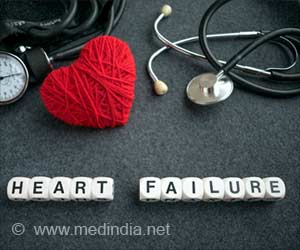Top-tier nutrition research reveals that unprocessed beef does not increase cardiovascular disease risk factors.

Beef Consumption and Cardiovascular Disease Risk Factors: A Systematic Review and Meta-analysis of Randomized Controlled Trials
Go to source). Titled "Beef Consumption and Cardiovascular Risk Factors: A Systematic Review and Meta-Analysis of Randomized Controlled Trials," the research was published in Current Developments in Nutrition. Notably, the review focused on randomized human clinical trials, which are considered the gold standard in nutrition research for shaping public health recommendations, such as the Dietary Guidelines for Americans.
‘Did You Know?
Beef is the third most widely consumed meat in the world, after pork and poultry. #medindia #beef #meat’





Beef is the third most widely consumed meat in the world, after pork and poultry. #medindia #beef #meat’
Advertisement
Red Meat: A Complex Category
Experts often stress the importance of dietary guidance being based on the highest quality research to inform evidence-based recommendations that can effectively improve public health. However, given the challenges with conducting long-term randomized controlled trials (RCTs), guidance is often based on observational evidence that does not prove cause and effect – and which often inconsistently classifies food. Red meat is a broad category that includes many different meats of varying fat content and levels of processing. Combining this variety of meats into one group can lead to oversimplified recommendations, such as “eat less red meat,” and overlooks potential benefits of individual red meats, such as lean beef.Advertisement
Unprocessed Beef in Cardiometabolic Studies
The study authors noted that, in both observational studies and RCTs assessing dietary components and/or patterns on cardiometabolic outcomes, “red meat” is a large category including both unprocessed and processed products, as well as a range of items such as beef, pork, lamb and even some types of poultry that are frequently clustered together under the umbrella term “red meat.” In this meta-analysis, 20 RCTs were assessed, which included a variety of dietary patterns with unprocessed or minimally processed beef.Advertisement
No Adverse Effects of Beef on Cardiovascular Health
“Given the disparity of products in the ‘red meat’ category, study methods that group all red meats together can lead to overly generalized findings,” said Kevin C. Maki, Ph.D., Adjunct Professor and Dean’s Eminent Scholar, Indiana University School of Public Health-Bloomington, and co-lead of this study. “However, when high-quality clinical trials analyze unprocessed or minimally processed beef as part of various dietary patterns, results have generally indicated that beef consumption has no adverse effects on traditional risk factors for cardiovascular disease.”Key findings included:
- Beef intake did not impact blood pressure or most lipoprotein-related variables, including total cholesterol, high-density lipoprotein cholesterol (HDL-C), triglycerides, non-HDL-C, apolipoprotein (apo) A, apo B, and very low-density lipoprotein cholesterol (VLDL-C).
- Unprocessed beef contains more cholesterol-lowering or neutral fatty acids than cholesterol-raising fatty acids, so beef intake did not significantly affect most blood lipids, apolipoproteins, or blood pressures compared to diets with little to no beef.
- Beef consumption had a small, but statistically significant effect on low-density lipoprotein cholesterol (LDL-C), corresponding to about 2.7 mg/dL higher LDL-C in diets containing more beef compared to low or no beef diets. However, testing of the contribution of each individual study to the overall findings showed that one study, where baseline values for LDL-C were already lower prior to consuming beef, was the primary influence of this result. When this study was removed from the analysis, the effect on LDL-C was no longer significant.
- The average amount of beef in the “higher” beef treatments was about 5.7 ounces, or approximately 2 servings/day. On average, American adults (19 years and older) consume 1.6 ounces of total beef each day.
Lean Beef as Part of a Heart-Healthy Diet
Consistent evidence from previously published RCTs demonstrates that 1-2 servings of lean beef can be enjoyed daily as part of a heart-healthy diet. For example, the Beef in an Optimal Lean Diet (BOLD) study was a landmark clinical trial demonstrating how subjects who included 4-5.4 ounces of lean beef into a Dietary Approaches to Stop Hypertension (DASH)-style dietary pattern rich in other healthy foods like vegetables, fruits, whole grains and low-fat dairy maintained normal cholesterol levels.Systematic reviews and meta-analyses of RCTs are regarded as the highest quality evidence, as they synthesize data from multiple relevant, rigorously controlled studies. In addition, it is well-established that bias can influence the findings of meta-analyses that pool results from clinical trials; therefore, several sources of potential bias were evaluated in this investigation. Of note, 71% of studies funded by the beef industry had a low risk of bias compared to only 40% of studies not funded by the beef industry.
Importance of Reliable Evidence in Public Health Guidance
“This research is a rigorous review of high-quality evidence, which can be useful for informing accurate and reliable public health guidance about unprocessed beef in healthy dietary patterns,” added Dr. Maki. “Our findings suggest that beef may be enjoyed in a variety of heart-healthy diets.”Reference:
- Beef Consumption and Cardiovascular Disease Risk Factors: A Systematic Review and Meta-analysis of Randomized Controlled Trials - (https://cdn.nutrition.org/article/S2475-2991(24)02434-X/fulltext)
Source-Eurekalert









